Related Research Articles

The Independent Labour Party (ILP) was a British political party of the left, established in 1893, when the Liberals appeared reluctant to endorse working-class candidates, representing the interests of the majority. A sitting independent MP and prominent union organiser, Keir Hardie, became its first chairman.

Margaret Grace Bondfield was a British Labour politician, trade unionist and women's rights activist. She became the first female cabinet minister, and the first woman to be a privy counsellor in the UK, when she was appointed Minister of Labour in the Labour government of 1929–31. She had earlier become the first woman to chair the General Council of the Trades Union Congress (TUC).
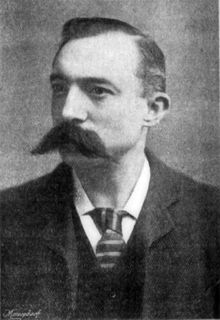
Robert Peel Glanville Blatchford was an English socialist campaigner, journalist, and author in the United Kingdom. He was also noted as a prominent atheist, nationalist and opponent of eugenics. In the early 1920s, after the death of his wife, he turned towards spiritualism.
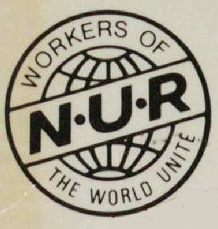
The National Union of Railwaymen was a trade union of railway workers in the United Kingdom. The largest railway workers' union in the country, it was influential in the national trade union movement.

Elizabeth Margaret Braddock was a British Labour Party politician who served as Member of Parliament (MP) for the Liverpool Exchange division from 1945 to 1970. She was a member of Liverpool County Borough Council from 1930 to 1961. Although she never held office in government, she won a national reputation for her forthright campaigns in connection with housing, public health and other social issues.

Dr. Ethel Bentham, was a progressive doctor, a politician and a suffragist in the United Kingdom. She was born in London, educated at Alexandra School and College in Dublin, the London School of Medicine for Women and the Rotunda Hospital.
Harry Wicks was a British socialist activist.
The Socialist Party of British Columbia (SPBC), later the Socialist Party of Canada , was a provincial political party in British Columbia, Canada, from 1901 to 1905. In 1903, the SPBC won seats in the Legislative Assembly of British Columbia.
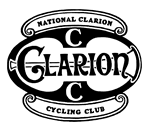
The National Clarion Cycling Club is a cycling club with some 30 member sections across Great Britain and over 1900 members.

The Amalgamated Society of Railway Servants (ASRS) was a trade union of railway workers in the United Kingdom from 1872 until 1913.

The Fabian Society is a British socialist organisation whose purpose is to advance the principles of democratic socialism via gradualist and reformist effort in democracies, rather than by revolutionary overthrow.
Ernest Albert John Davies was a British journalist, author and Labour Party politician.
The Women's Trade Union League, founded in 1874 and known until 1890 as the Women's Protective and Provident League, was a British organisation promoting trade union for women workers. It was established by Emma Paterson, who had seen unions managed by working women in America.

Ada Salter was an English social reformer, environmentalist, pacifist and Quaker, President of the Women's Labour League and President of the National Gardens Guild. She was one of the first women councillors in London, the first woman mayor in London and the first Labour woman mayor in the British Isles.
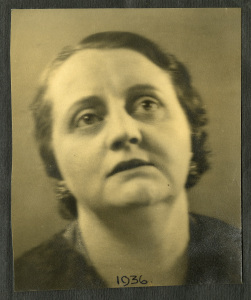
Winifred Horrabin, née Batho (1887–1971), was a British socialist activist and journalist.
The Women's Labour League was a pressure organisation, founded in London in 1906, to promote the political representation of women in parliament and local bodies. The idea was first suggested by Mary Macpherson, a linguist and journalist who had connections with the Amalgamated Society of Railway Servants, and was taken up by several notable socialist women, including Margaret MacDonald, Marion Phillips and Margaret Bondfield. The League's inaugural conference was held in Leicester, with representatives of branches in London, Leicester, Preston and Hull. It was affiliated to the Labour Party. Margaret MacDonald acted as the League's president, while both Margaret Bondfield and Marion Phillips served at times as its organising secretary.
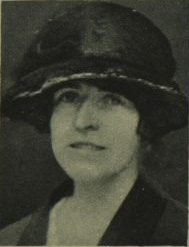
Agnes Johnston Dollan MBE, also known as Agnes, Lady Dollan, was a Scottish suffragette and political activist. She was a leading campaigner during the Glasgow Rent Strikes, and a founding organiser of the Women's Peace Crusade. In 1919, she was the first woman selected by the Labour party to stand for election to Glasgow Town Council, and later became Lady Provost of Glasgow.

Sarah Reddish (1850–1928) was a British trade unionist and suffragette, who was active in the cooperative movement. A supporter of women running for local elections as a springboard to gaining national voting rights, she ran for office on the Bolton School Board and was successful in her second attempt in 1899. She also ran for office as a Poor Law Guardian, and was successful, but was defeated in her attempt to become a member of the borough council. As a textile worker, Reddish knew first-hand the conditions and wages women experienced and joined unions, working as a paid organiser to help women improve their situations. She was both a socialist and a radical feminist, urging women's equality in the public sphere.
This is an overview of Women's Suffrage activism and local politics as experienced in Leigh, Lancashire between 1900 and 1914.
John Edward Binks was a British trade unionist and politician, who served as President of the National Union of Railwaymen, and as an alderman on the London County Council.
References
- 1 2 3 "The Executive Election". Fabian News. April 1900.
- ↑ Bagwell, Philip Sidney (1963). The National Union of Railwaymen, 1913-1963. National Union of Railwaymen.
- ↑ Collette, Christine (1989). For Labour and for Women: The Women's Labour League, 1906-1918. Manchester: Manchester University Press. ISBN 0719025915.
| Party political offices | ||
|---|---|---|
| Preceded by New position | Secretary of the Women's Labour League 1906–1907 | Succeeded by Mary Middleton |